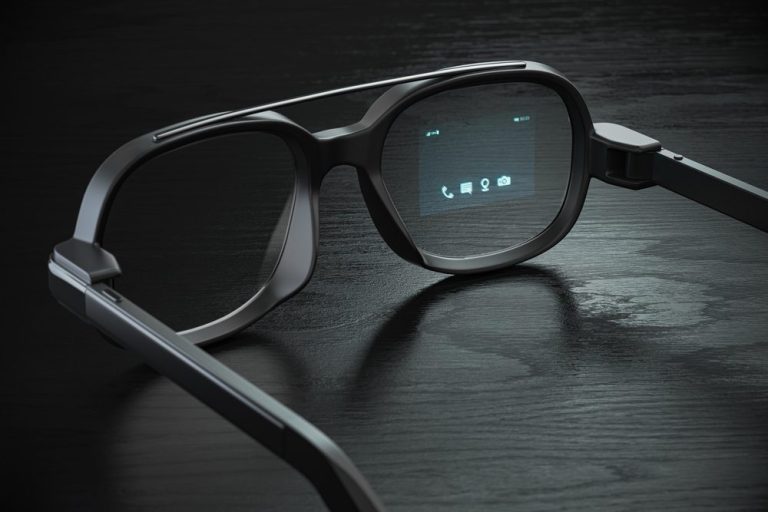Tech Firms Usher in Next-Gen AR Glasses for European Creators

Recent Big Tech moves highlight advancements in the design of augmented reality (AR) glasses.
While the concept has been around for a while — it’s been about a decade since Google Glass first gave AR glasses mainstream attention — Meta’s move to snap up the Dutch smart lens manufacturer Luxexcel demonstrates continued Big Tech interest in the innovative idea.
Unlike virtual reality (VR), AR doesn’t require bulky headsets that close the user off from the outside world. And in fact, lightweight components are seen as critical to the technology’s success, with Luxexcel’s website referring to lighter, smaller, less obtrusive designs.
While VR headsets are typically oriented toward the entertainment market and some occasionally questionable experiments in retail, AR glasses are more often imagined as the next generation of smart wearables.
Accordingly, whereas VR headsets need to be comfortable for the extent of a prolonged gaming session, AR glasses are seen as the eyewear equivalent of smartwatches. As such, for them to gain mainstream adoption, users need to be able to wear them for much longer periods.
Here’s where Luxexcel’s expertise in 3D printing regular prescription lenses is expected to come into play, helping to develop smart lenses that integrate AR into comfortable frames that can be worn for hours while offering 3D printed custom lenses at scale more efficiently than traditional methods can.
Steps Toward Ubiquitous Smart Glasses
While Meta’s big budget bet on VR and AR has been widely publicized, it isn’t the only social media platform operator investing in AR glasses.
After initial attempts to create a retail market for its AR glasses, Spectacles by Snap have been available since 2021 to a select group of creators looking to create their own AR experiences.
And like Meta, Snap has chosen to bring product development in-house by purchasing its technology partner in the venture, WaveOptics, for over $500 million.
Interestingly, Luxexcel and WaveOptics have an ongoing collaborative relationship that has seen the Oxford-based company integrate its waveguides and light engines into Luxexcel’s smart lenses.
The co-developed product is manufactured using Luxexcel’s 3D printing platform to precisely embed WaveOptics’ components inside the lenses without sacrificing their ability to correct people’s vision.
At first glance, Luxexcel and WaveOptics’ focus on making incremental improvements to the comfortable user experience of AR may appear mundane compared to the more sensational treatment of the technology in its SciFi or military inflections.
But if AR glasses are to attain the ubiquity of smartphones, such minor design tweaks and a strong focus on mass wearability will be critical.
For its part, Meta has made no official announcement on if or when it will enter the AR glasses market. That being said, the latest acquisition and recent comments by Andrew Bosworth, Meta’s CTO and the head of its metaverse research and development unit, Reality Labs, suggest an ambition to enter the space in the future.
“Our vision for true AR glasses will require years of progress, making our devices slimmer, lighter, faster and more powerful, all while consuming way less battery power and generating much less heat,” he commented in a blog post in December.
For all PYMNTS EMEA coverage, subscribe to the daily EMEA Newsletter.